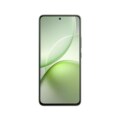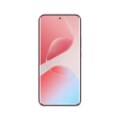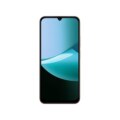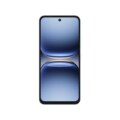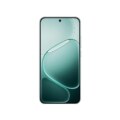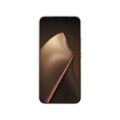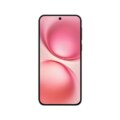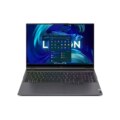Realme 14
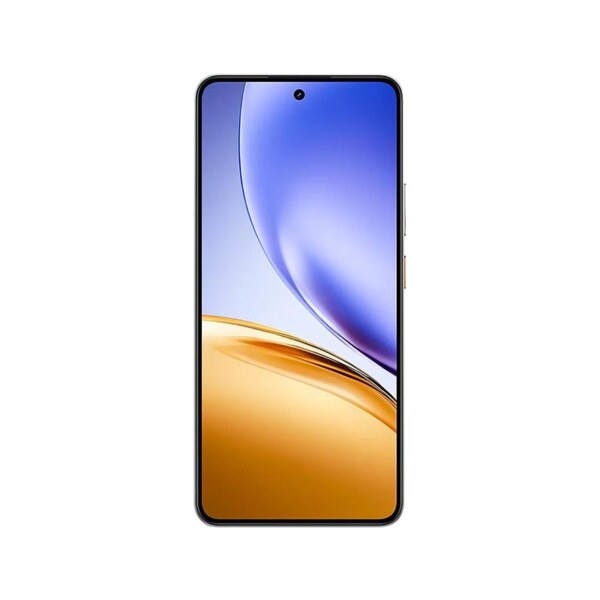

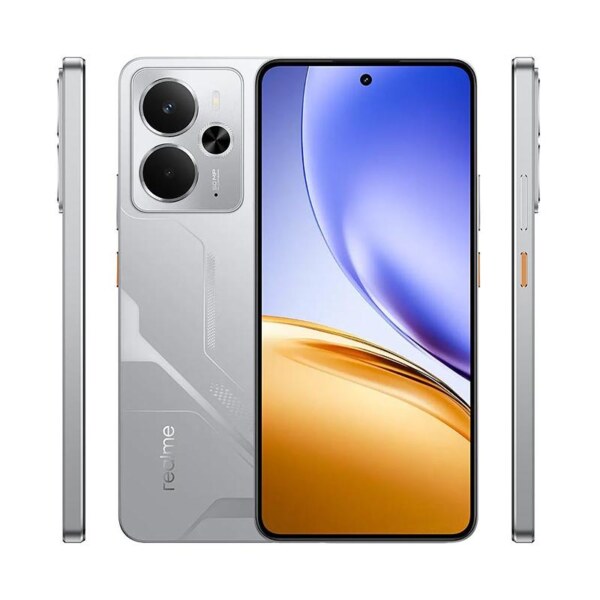
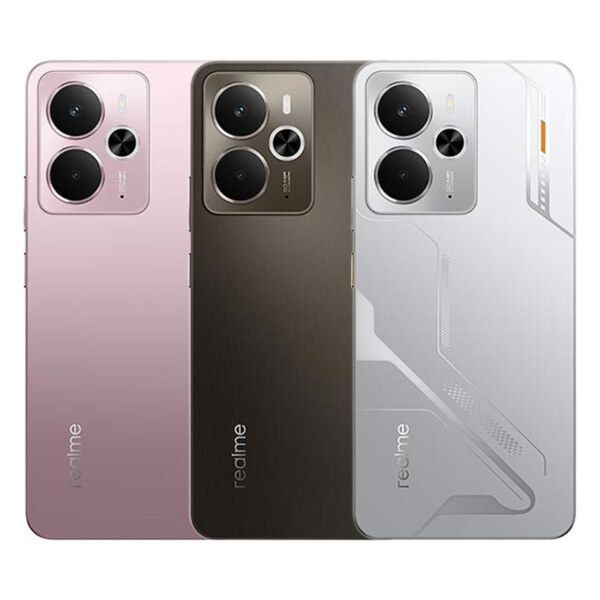
-
Chipset: Qualcomm Snapdragon 6 Gen 4 (4 nm)
-
RAM: 12GB RAM (+14GB Dynamic RAM)
-
Storage: 512GB
-
Display: 6.67 Inches, AMOLED, 120Hz, 2000 nits (peak)
-
Camera: 50MP + 16MP
-
OS: Android 15 OS
Specs
General
| Device Type | Mobile |
| Model | Realme 14 |
| Released | 13 July, 2025 |
| Status | Available |
| Price | 99,999 |
Design
| Type Design Type called form factor refers to a mobile phone's size, shape, and style as well as the layout and position of major components of phone. There are three major form factors seen in mobile phones => bar phones, folding phones and sliding phones. | Bar |
| Dimensions | 163.1 x 75.7 x 8 mm |
| Weight | 196 g |
| Colors | Mecha Silver, Storm Titanium |
| Extra Features Extra Features in Display of mobilpehones | IP68/IP69 dust tight and water resistant (high pressure water jets; immersible up to 2.5m for 30 min) |
Network
| 2G Network Indicates whether the mobile phone supports 2G network connectivity for basic calls and texts. |
SIM1: GSM 850 / 900 / 1800 / 1900 SIM2: GSM 850 / 900 / 1800 / 1900 |
| 3G Network Indicates whether the mobile phone supports 3G connectivity for standard internet browsing and calls. | HSDPA 800 / 850 / 900 / 1700(AWS) / 2100 |
| 4G Network Indicates whether the mobile phone supports 4G connectivity for fast internet browsing and HD calls. | LTE band 1(2100), 3(1800), 5(850), 8(900), 38(2600), 40(2300), 41(2500) |
| 5G Network Indicates whether the mobile phone supports 5G connectivity. | SA/NSA |
| SIM SIM (Subscriber Identity Module) is a small card that contains mobile network subscriber's account information. This allows the phone using the card to attach to a mobile network. The SIM card is most commonly associated with GSM and UMTS mobile networks. Moving a SIM card from one phone to another allows a subscriber to switch mobile phones without having to contact their mobile network carrier. SIM cards can also be used by a phone to store limited amounts of data, such as phone numbers and text messages. | Nano SIM + Nano SIM |
| Dual SIM | Yes, Dual SIM |
Display
| Display Type Display Technology => A number of display technologies and types used in mobile phones => TFT (Thin Film Transistor), IPS (In-Place Switching), OLED (Organic Light Emitting Diode), AMOLED (Active-Matrix Organic Light-Emitting Diode), Super AMOLED (an even advanced version of AMOLED), Resistive Touchscreen (Resistive touchscreens contain two layer of conductive material with a very small gap between them which acts as a resistance), Capacitive Touchsceen (Capacitive touchscreen technology consists of a layer of glass coated with a transparent conductor) | AMOLED Capacitive Touchscreen |
| Size | 6.67 Inches |
| Resolution | 1080 x 2400 Pixels |
| Pixel Density Pixel Density (PPI) is refers to the concentration of pixels on a particular display, measured in pixels per inch (ppi). Pixel density is calculated by dividing the diagonal pixel resolution of a display by its diagonal size, higher pixel density better display quality. | (~395 PPI) |
| Features | 120Hz, 2000 nits (peak) |
Media
| FM Radio | No |
| Loudspeaker | Yes, with stereo speakers |
| 3.5mm jack Is it have 3.5mm headphone jack or not. | No |
Camera
| Primary Camera is able to capture photographs and usually videos, The most important characteristics of a camera are the resolution (measured in megapixels), lens focus type (fixed or automatic), higher megapixel cameras are known to capture higher quality photos, but not always a good measurement of the photos quality. | Single Camera: 50 MP, f/1.8, 27mm (wide), PDAF, OIS |
| Video | 4K@30fps, 1080p@30/60/120fps |
| Camera Features | Panorama, gyro-EIS, OIS |
| Flash Flash Light => There is commonly two types of flash lights are used in camera mobile phones, LED Flash (LED flash offers lower power consumption with drive circuitry that takes up very little room, LEDs can be strobed faster than any other light source), Xenon Flash (xenon flash produces an extremely intense full-spectrum white light for a very short duration) | LED Flash |
| Secondary | 16 MP, f/2.4, 24mm (wide), 1/3.0, Panorama, Video (1080p@30fps) |
Software
| Operating System OS => Every computer system run on a base software called Operating System (OS). Operating System controls all basic operations of the computer (such as smartphone, PDAs, tablet computers and other handheld devices). The Operating System allows the user to install and run third party applications (apps), apps are used to add new functionality to the device. | Android 15 OS |
| User Interface UI or user interface of a device is the look and feel of the on-screen menu system. How it works, its color scheme, how it responds to button presses, all of these things are part of the user interface. | Realme UI 6.0 |
Hardware
| Chipset Chipset is a group of integrated circuits designed to perform one or a more dedicated functions, often with real time computing constraints, Popular smartphones are equipped with more advanced embedded chipsets that can do many different tasks depending on their programming. | Qualcomm Snapdragon 6 Gen 4 (4 nm) |
| CPU CPU (Central Processing Unit) mostly known as processors, CPU processes instructions in order to carry out certain functions that make your device operate properly. Processors are often described as the brain of computers, smartphones and tablets, Smartphones and tablets rely on processors to carry out their every task, Processors are an incredibly important factor in selecting any type of computing device, including your smartphone. | Octa-core (1 x 2.3 GHz Cortex-A720s + 3 x 2.2 GHz Cortex-A720s + 4 x 1.8 GHz Cortex-A520s) |
| GPU GPU | Adreno 810 |
| RAM (Memory) RAM (Random Access Memory) is a type of computer memory that can be accessed randomly, any byte of memory can be accessed without touching the preceding bytes that allows information to be stored and accessed quickly from random locations. RAM is the most common type of memory found in computer systems, smartphones, tablets and other electronic devices. | 12GB RAM (+14GB Dynamic RAM) |
| Internal Storage Internal Storage is a data storage space (flash memory) mostly used in smartphones, tablets and other electronic devices where operating system, apps, music, photos, videos, files and other user data Is stored. | 512GB |
| Card Slot Memory Card Slot is a special slot for inserting a memory card. Memory cards allow you to expand the phone's built-in memory, A memory card (sometimes called a flash memory card or a storage card) is a small storage medium used to store data such as text, pictures, audio, and video, for use on small, portable or remote computing devices such as mobile phones, mp3 players, digital cameras. | microSDXC (uses shared SIM slot) |
| Fingerprint fingerprint | In-Display |
| Sensors Sensors are electronic components that detects and responds to some type of input from the physical environment. The specific input could be light, heat, motion, moisture, pressure and location, The output is generally a signal that is converted to use in computing systems, a location sensor, such as a GPS receiver is able to detect current location of your electronic device. | Accelerometer, Compass, Gyro, Proximity |
Connectivity
| Bluetooth Bluetooth is a wireless communications technology for exchanging data between mobile phones, headsets, computers and other network devices over short distances without wires, Bluetooth technology was primarily designed to support simple wireless networking of personal consumer devices. | v5.2 with A2DP, LE |
| Infrared Infrared connectivity is an old wireless technology used to connect two electronic devices. It uses a beam of infrared light to transmit information and so requires direct line of sight and operates only at close range. | |
| Wi-fi Wi-Fi is a popular wireless networking technology using radio waves to provide high-speed network connections that allows devices to communicate without cords or cables, Wi-Fi is increasingly becoming the preferred mode of internet connectivity all over the world. | Wi-Fi 802.11 a/b/g/n/ac/6, dual-band |
| USB | USB Type-C 2.0 |
| GPS GPS The Global Positioning System is a satellite-based radio navigation system, GPS permits users to determine their position, velocity and the time 24 hours a day, in all weather, anywhere in the world, In order to locate your position, your device or GPS receiver must have a clear view of the sky. | Yes + A-GPS support & Glonass, BDS, GALILEO, QZSS |
| NFC NFC (Near field communication) is a set of standards for smartphones and similar devices to establish peer-to-peer radio communications with each other by touching them together or bringing them into proximity, usually no more than a few inches. |
Data
| GPRS GPRS (General Packet Radio Service) is a packet oriented mobile data service on the 2G and 3G cellular communication system's global system for mobile communications (GSM), Generally, GPRS is used for the purpose of wireless data transfer, such as sharing pictures and videos or browsing the Internet via a mobile phone connection. | |
| EDGE EDGE (Enhanced Data GSM Environment) is a wireless network technology generally considered the next step in the 2G network offers data transfer rates up to four times faster than ordinary GSM networks, Generally, EDGE is used for the purpose of wireless data transfer, such as sharing pictures and videos or browsing the Internet via a mobile phone connection. | |
| Speed | 2G GSM, 3G HSPA, 4G LTE, 5G Capable |
| Web Browser Web Browser => a web browser is a software application used to locate, retrieve and display content on the World Wide Web, including Web pages, images, video and other files, The primary function of a web browser is to render HTML, the code used to design or markup webpages. | HTML5 |
Messaging
| SMS SMS (Short Messaging Service) is a text messaging service component of phone, Web, or mobile communication systems. It uses standardized communications protocols to allow mobile phone devices to exchange short text messages over the networks. | Yes |
| MMS MMS (Multimedia Messaging Service) is a standard way to send messages that include multimedia content (audio clips, video clips and images) to and from mobile phones over wireless networks using the WAP protocol. | Yes |
| Email Email (Electronic Mail) is a system for receiving, sending, and storing electronic messages, Similar to a letter, email is text messages that may contain files, images, or other attachments sent via the internet to a recipient by using applications and software prograps. An email address is required to receive email, and that address is unique to the user. | Yes |
Battery
| Battery Type Battery Type => Cell phones run on various kinds of batteries depending on the manufacturer, phone size or shape and features. There are basically four types of cell phone batteries => Lithium Polymer, Lithium Ion, Nickel Metal Hydride and Nickel Cadmium. | Si/C Li-Ion |
| Capacity Battery Capacity is a measure (typically in Amp-hr) of the charge stored by the battery, and is determined by the mass of active material contained in the battery. The battery capacity represents the maximum amount of energy that can be extracted from the battery under certain conditions. | 6000 mAh |
| Fast Charging Is the device support fast charging. | Fast battery 45W wired, 50% in 30 min Bypass charging |
Why Realme 14 5G is the Perfect Choice for Gamers
The Realme 14 5G is the latest addition in Realme’s popular number series and this time, it’s specially designed for gamers and power users. Realme has packed it with some serious features that make it stand out in the mid-range market.
This phone is the world’s first to get the brand-new Snapdragon 6 Gen 4 processor, which promises around 20-25% better performance than the previous generation. Paired with 12GB RAM (expandable virtually up to 26GB) and fast UFS 3.1 storage, it can handle high frame rate gaming and heavy multitasking with ease.
To keep things cool during long gaming sessions, Realme has added a Bionic Vapor Chamber Cooling System along with a GT Mode for performance boost. The phone also supports bypass charging, which protects the battery when gaming while plugged in.
On the display side, the Realme 14 5G offers a 6.67-inch Full HD+ AMOLED display with 120Hz refresh rate and massive 1500Hz touch sampling rate perfect for smooth gameplay and fast response. With peak brightness up to 2000 nits, content looks bright even outdoors.
It comes with dual speakers, Widevine L1 support for HD streaming, and an under-display fingerprint sensor for quick unlocking. The design is gamer-inspired with a unique Mechatronic look and a breathing halo light for notifications. If you prefer a simple look, there’s also a Storm Titanium color option with a clean back finish.
One of the biggest highlights is the massive 6000mAh battery, which easily supports long gaming and media sessions. The phone charges at 45W, which is not the fastest in this segment but strikes a balance between speed and battery health.
For durability, the Realme 14 5G is fully IP66, IP68, and even IP69 rated, which means it can survive dust, water, and even high-pressure water jets quite rare in this category.
When it comes to cameras, this phone is more about gaming than photography. It has a 50MP main camera with OIS, but no ultra-wide lens only a 2MP depth sensor. The selfies are handled by a basic 16MP front camera, which is decent but nothing special at this price. If cameras are your top priority, you might want to look elsewhere.
On the software side, you get Android 15 with Realme UI 6, which is clean and smooth with some handy AI features like Circle to Search and AI Recording Summary. Gamers also get the GT Boost menu to tweak performance further.
Overall, the Realme 14 5G is clearly made for gamers and heavy users who want smooth high frame rate gaming, strong performance, and long battery life all packed in a stylish and durable design. If that’s your priority, this is definitely a phone to check out.
Pricing:
Here are the current prices for the Realme 14:
- Price in Paistan: PKR 99,999
- Price in USD: $306
Reviews
Disclaimer Note
You can write your own disclaimer from APS Settings -> General -> Disclaimer Note.

